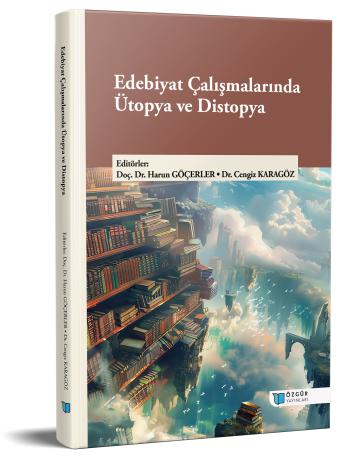
Deep Ecology Perspectives in Robert Havemann’s Ecological Utopia Morgen (Tomorrow)
Chapter from the book:
Göçerler,
H.
&
Karagöz,
C.
(eds.)
2025.
Utopia and Dystopia in Literary Studies.
Synopsis
Robert Havemann’s ecological utopia Morgen (Tomorrow) presents a literary model that concretizes the eight fundamental principles of Arne Næss’ deep ecology. The work critiques anthropocentric perspectives by placing the intrinsic value of ecosystems and the integrity of the biosphere at the center of social life. The first two principles emphasize the inherent worth of both human and non-human life and the necessity of preserving biodiversity, reflected in a lifelong learning-based ecological consciousness within education. The third and fourth principles advocate non-harm to life forms and the maintenance of population in harmony with nature; in Morgen (Tomorrow), population policies and urban planning are reorganized accordingly. The fifth and sixth principles highlight the need for economic, technological, and ideological transformations to minimize human-induced damage to natural life, resulting in a model of life in ecological balance. The seventh principle prioritizes appreciation of intrinsic values over enhancing living standards; cultural education ensures that individuals understand the values of both nature and humanity. The eighth principle emphasizes the responsibility of individuals and communities to implement necessary ecological changes. Consequently, Morgen (Tomorrow) offers a comprehensive mental and structural transformation model in response to the ecological crises produced by modern societies, representing a literary expression of ecological consciousness and sustainable living, and securing an important place in environmental literature.

